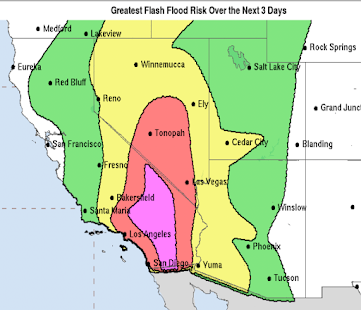Two Sides Talking Past Each Other
Two new laws have just taken effect with regard to evolution and schools:
By request, we covered this topic -- the trumped up 'conflict' between religion and science -- on this blog a little less than two months ago. If this topic interests you, please read my thoughts and the subject. The bottom line is that there is no genuine conflict between religion and science.
From where I sit, political action groups -- on both sides -- like to hype the supposed conflict for their own purposes.
The theory of evolution has become a flashpoint for religious conservatives, many of whom argue that the idea of life evolving over billions of years clashes with Biblical beliefs. Republican State Rep. Gary Hopper, who with his Republican district mate John Burt introduced HB 1457, told the Concord Monitor that the theory of evolution teaches students that life is nothing but an accident.
"I want to introduce children to the idea that they have a purpose for being here," Hopper told the newspaper.
By request, we covered this topic -- the trumped up 'conflict' between religion and science -- on this blog a little less than two months ago. If this topic interests you, please read my thoughts and the subject. The bottom line is that there is no genuine conflict between religion and science.
From where I sit, political action groups -- on both sides -- like to hype the supposed conflict for their own purposes.




Calling the conflict "trumped up" seems a little naive when you've got religious groups rewriting public-school textbooks to say that evolution isn't proven. You can quote foundational documents all day long, but the fact is that the modern evangelical movement and its right-wing political branch have tried to demonize science and reason at every turn.
ReplyDelete@8:15am. Curious if you read my original posting on this subject (red link) where a pro-global warming scientist in a scientific journal was demonizing religion? My point is that both sides are doing this, usually for political reasons. You disagree?
ReplyDeleteAnyone can dig up anecdotal evidence to make an unbalanced situation look balanced, Mike. I really don't think these particular scales are level, however much you might believe or want them to be. When the Texas Board of Education is trying to rewrite science textbooks to include Biblical creation stories, you can't just point to church documents and say "But it says here they're pro-science!"
ReplyDeleteThis may seem like a silly question but please bear with me. In what ways does the modern evangelical movement demonstrate it is anti-science?
ReplyDeleteFor starters:
ReplyDeletehttp://www.nytimes.com/2010/03/13/education/13texas.html
And, of course:
ReplyDeletehttp://creationmuseum.org/
Not to sound like a therapist :) - how would you sum those up in your words? I don't want to put words in your mouth.
ReplyDelete@11:52am. I would never rely on the NYT for stories of this nature. They did a similar story in Kansas last summer -- involving people I know -- and it was obvious they were not letting facts getting the the way of their "narrative." What came out in the article were stereotypes -- not the way those people really thought.
ReplyDeleteOh right, the vast left-wing liberal media conspiracy. I forgot.
ReplyDeleteNope, just lazy 'journalism'. I've encountered it over the past couple decades everywhere from my company's internal media through the Boston Globe, print and broadcast, personally and through subjects I have a direct and close personal relationship with.
ReplyDeleteFor myself, it has caused me to seek to avoid media interaction, particularly where I am unable to participate in the editorial process.
Any personal thoughts on ways the modern evangelical movement demonstrates it is anti-science?
JAK, how about deeply entrenched opposition to stem-cell research? How about promoting the idea that man and dinosaurs roamed the earth together just a few short thousand years ago? How about encouraging schools to "teach the controversy" over evolution, which is "only a theory" anyway? (That's a doozie: implying that there's actually a controversy while also horrifically misusing a scientific term.)
ReplyDeleteMaybe I'm crazy here, but I think all of that counts as anti-science.
"I think all of that counts as anti-science."
ReplyDeleteWell, not quite. There is a big difference between refusing to accept the validity of a scientific theory/explanation for some natural phenomenon (e.g. evolution) and refusing to approve a scientific PRACTICE on moral or ethical grounds (opposition to embryonic stem cell research).
Just because something is scientifically possible or valid doesn't necessarily mean it SHOULD be done regardless of the potential moral or ethical consequences involved.
Is it "anti-science," for example, to oppose publication of the methods recently used to mutate avian flu into a highly contagious form? Or to forgo using data gathered from Nazi concentration camp experiments on unwilling research "subjects"? Or to refuse to participate in research and development of weapons of mass destruction? You get the picture.
Not all ethical issues are going to be clear cut and obviously not everyone is going to agree on whether certain practices are unethical. However, I think you get the general idea, that it's not necessarily "anti-science" to acknowledge that there are moral boundaries to what can or should be done.
Elaine
Interesting; thank you for your thoughts.
ReplyDeleteFundamentally, there are no anti-science sentiments in your examples. You note areas where you philosophically disagree with how these folks choose to guide scientific exploration, but no examples of a systemic anti-science bias.
We have been trained that science *is solely* a material naturalistic pursuit, and any other guiding philosophy is unscientific. Such a definition is most importantly a logical fallacy, and tellingly not supported by the whole of human history apart from the past century or so. (A very brief expansion of my thoughts here can be seen here: http://meteorologicalmusings.blogspot.com/2011/11/false-conflict-between-science-and.html?showComment=1321559091346#c1724623953389624532)
I hope that helps :)
That's an interesting perspective, JAK, but you seem to have invented your own definition of science there.
ReplyDeleteI respectfully disagree. Perhaps I was not the clearest in my comment.
ReplyDeleteAll rational thought, science being an investigative extention of such, is founded on the overall perspective from which one sees and interprets the world, one's foundational philosophies on 'what is', or more simply: one's world-view. The tool of science helps us with answering the "hows" of existence, and as such science makes a valuable contribution to the larger picture of our world-view, potentially even sugesting errors in our beliefs. However, there are questions that science cannot answer: questions of ultimate origins, of meaning and purpose, of morality, of what it means to be human. These must be supplied from other philosophies outside of science such as islam, materialistic naturalism, judeo christianity, postmodernism, Buddhism, etc. Such as been understood for millenia.
To go full cricle here, the fact is that the modern evangelical movement and its right-wing political branch have not tried to demonize science and reason at every turn, rather they approach the world with a world-view different than yours. Rather than yourself demonizing those with differing world-views, it would be more productive to respectfully (and I would argue Socratically) discuss the aspect of the world-view that you find errant.
JAK, all you've done is create a logical end-around wherein anything and everything can be considered "science" in some respect because it's part of their "worldview." While I commend your all-encompassing acceptance or willingness to believe or whatever you want to call it, in the end, it's a dodge. It's got no basis in reality - and I'm talking about the reality where people use math to forecast the weather and explore outer space and cure diseases, not the reality where any deeply held belief can be pronounced factual without verification.
ReplyDeleteWow.
ReplyDeleteI hope you are just giving me a hard time and not really rejecting logic, reason, and the entire history of scientific exploration of our universe. ;)
Consider:
http://www.americanhumanist.org/who_we_are/about_humanism/Is_the_War_between_Science_and_Religion_Over
and
http://www.thefreelibrary.com/Three+meanings+of+Islamic+science%3A+toward+operationalizing...-a0164596584
I think little more needs be said.
I sincerely thank you for your time and your thoughts.
I pray for your best.
And I pray for you to stop making excuses for a religious-political institution that glorifies ignorance and bigotry. I wonder whose prayer will be answered.
ReplyDelete